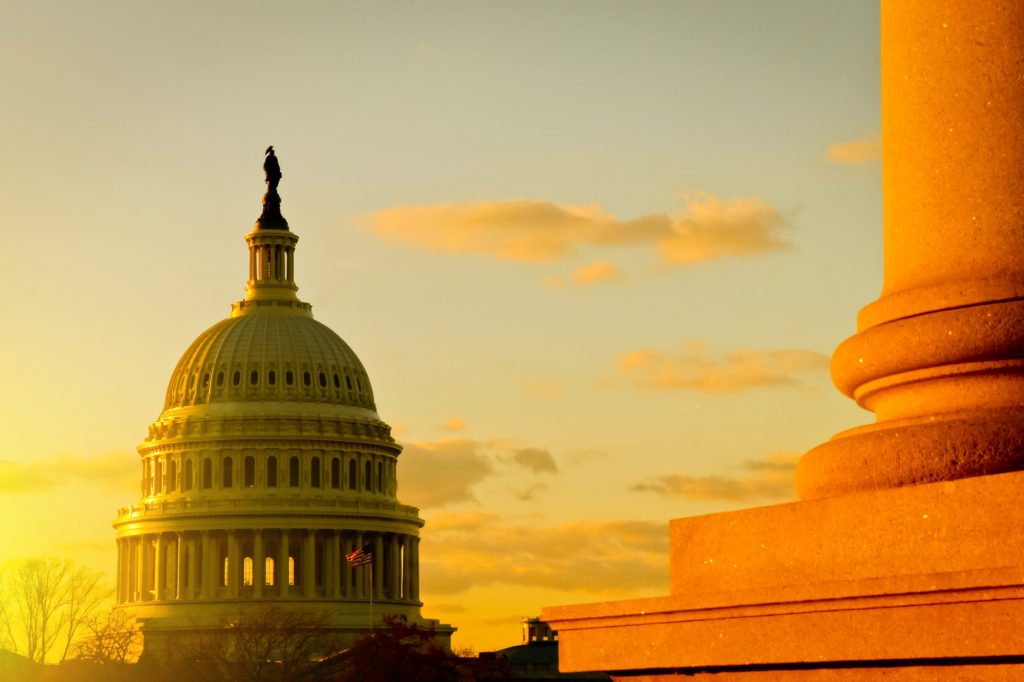
Published February 25, 2021
The House is slated to vote today on the Equality Act, which, far from bringing about any new or necessary form of equality, would in fact impose on the entire country the Left’s revisionist view of sex, gender, and human nature.
The law amends the Civil Rights Act of 1964 to add “sexual orientation” and “gender identity” as classes protected by nondiscrimination statutes. Under the Equality Act, anyone who dissents from the progressive desire to erase the biological realities of manhood and womanhood would, as Ryan Anderson puts it, be treated as “the legal equivalent of Bull Connor.”
As many conservatives — and, indeed, many liberals — have noted, the law’s provisions would undoubtedly lead to an erasure of women’s rights. If passed, the legislation would put women at risk by granting biological men who identify as women access to female-only spaces, including shelters for battered women, locker rooms, dressing rooms, dorm rooms, and restrooms. The bill would also require sports teams to let such men participate in women’s-only sports leagues, putting female competitors at a clear disadvantage.
But the Equality Act is more insidious still. In addition to rendering male–female distinctions essentially null for the purposes of law, it would smuggle in a redefinition of discrimination that would make it impossible for individuals and institutions to decline to perform or pay for an abortion.
Under the Equality Act, health-care professionals would be required by law to perform sex-reassignment procedures or offer related hormone treatment, even if such procedures contradicted their own best medical judgment. So too, the law would treat refusals to perform an abortion as pregnancy discrimination, which would be treated as an illegal form of discrimination on the basis of sex.
The Equality Act redefines “sex” to include “pregnancy, childbirth, or a related medical condition,” and, as the bill’s opponents have noted, federal agencies and courts already have determined that the phrase “related medical condition” can be interpreted to include abortion.
The bill’s text also stipulates that those with “a related medical condition shall not receive less favorable treatment than other physical conditions,” which would in effect make it illegal for physicians to decline to perform an abortion. The legislation therefore would enable women who are denied an abortion, even as a result of a health-care worker’s religious or conscience objections, to challenge the decision under the law — and most likely, they would be legally successful.
Similarly, as advocates of the Equality Act have openly admitted, those same provisions could be read to require taxpayer funding of elective abortions. Such funding is currently prohibited by the Hyde amendment, typically attached to federal spending bills to prohibit direct reimbursement of abortion procedures.
But because the federal government funds a wide range of health-care programs, and because the bill defines “establishments” broadly to include institutions other than actual health-care facilities, the government itself likely would be subject to the terms of the Equality Act. As a result, the law would almost certainly require the government to cover the cost of abortion procedures.
State governments, too, would be subject to this reading of the law. Because states receive federal funds to underwrite their health-care programs, the Equality Act could require them to cover the cost of elective abortions with that funding.
What’s more, the Equality Act exempts itself from long-standing federal protections for religious freedom. The bill explicitly states that the law is not subject to the protections of the Religious Freedom Restoration Act, giving those who object either to abortion or sex-reassignment procedures no means of defending their religious-liberty or conscience rights.
As a result, the Equality Act would obliterate our nation’s long-time bipartisan commitment to conscience protections and compel every American to participate in the Left’s radical effort to redefine gender and expand unlimited legal abortion.
Alexandra DeSanctis is a staff writer for National Review and a visiting fellow at the Ethics and Public Policy Center.




